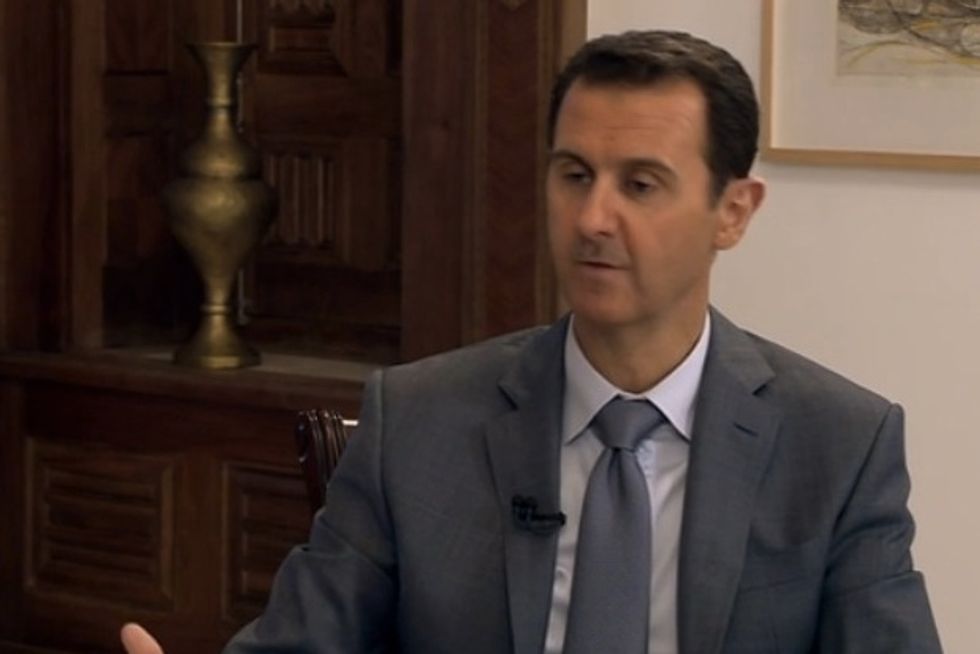
Bashar al Assad (Image source: CBS News)

The Obama administration maintained secret contact with elements of the Syrian government for several years in an attempt to obtain regime change in the country, the Wall Street Journal reported Thursday.
But the result may have been to enhance the power of Syrian President Bashar Assad — the dictator the administration is trying to push to step aside.
 Syrian President Bashar Assad gestures as he speaks during an interview with Italy's RAI News 24 TV, at the presidential palace in Damascus, Syria, Sept. 29, 2013. (AP)
Syrian President Bashar Assad gestures as he speaks during an interview with Italy's RAI News 24 TV, at the presidential palace in Damascus, Syria, Sept. 29, 2013. (AP)
“The regime was re-legitimized,” Ibrahim Hamidi, a Syrian journalist, told the newspaper. “Any communication with the U.S. — even the perception of it — gives them the upper hand.”
The Journal said it interviewed two dozen U.S. and Arab officials, most of whom didn’t provide their names.
“The White House’s policy in 2011 was to get to the point of a transition in Syria by finding cracks in the regime and offering incentives for people to abandon Assad,” a former senior Obama administration official told the Journal.
According to the Journal report:
U.S. officials said communications with the regime came in fits and starts and were focused on specific issues. At times, senior officials spoke directly to each other and at others, they sent messages through intermediaries such as Mr. Assad’s main allies Russia and Iran.Mr. Assad tried at different times to reach out to the administration to say the U.S. should unite with him to fight terrorism.
In 2011, as the regime began to crack down on protests and soldiers began to peel away from the army, U.S. intelligence officials identified officers from Mr. Assad’s minority Alawite sect who potentially could lead a regime change, according to former U.S. officials and current European officials.
The Journal went on to reveal that the administration’s continued calls for Assad to step aside caused his clout to increase.
"[I]nstead of persuading Mr. Assad to exit," the paper reported, "the covert communications may have fed his sense of legitimacy and impunity."
"That helped fuel the current wrangling among world powers over the Syrian leader’s future in any settlement," the reported continued, "It also hampered the effort to consolidate the international fight against Islamic State."